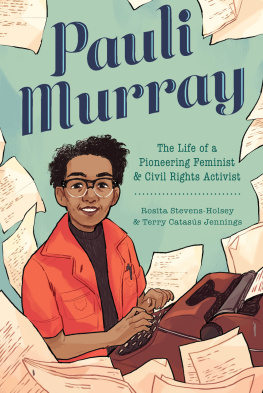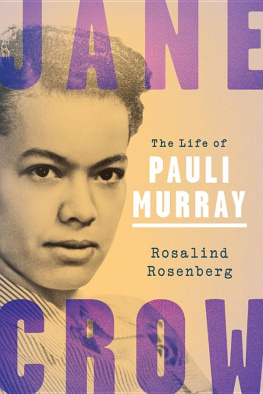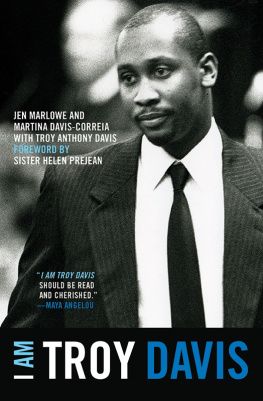Troy R. Saxby - Pauli Murray: a personal and political life
Here you can read online Troy R. Saxby - Pauli Murray: a personal and political life full text of the book (entire story) in english for free. Download pdf and epub, get meaning, cover and reviews about this ebook. year: 2020, publisher: The University of North Carolina Press, genre: Non-fiction. Description of the work, (preface) as well as reviews are available. Best literature library LitArk.com created for fans of good reading and offers a wide selection of genres:
Romance novel
Science fiction
Adventure
Detective
Science
History
Home and family
Prose
Art
Politics
Computer
Non-fiction
Religion
Business
Children
Humor
Choose a favorite category and find really read worthwhile books. Enjoy immersion in the world of imagination, feel the emotions of the characters or learn something new for yourself, make an fascinating discovery.

- Book:Pauli Murray: a personal and political life
- Author:
- Publisher:The University of North Carolina Press
- Genre:
- Year:2020
- Rating:5 / 5
- Favourites:Add to favourites
- Your mark:
- 100
- 1
- 2
- 3
- 4
- 5
Pauli Murray: a personal and political life: summary, description and annotation
We offer to read an annotation, description, summary or preface (depends on what the author of the book "Pauli Murray: a personal and political life" wrote himself). If you haven't found the necessary information about the book — write in the comments, we will try to find it.
Pauli Murray: a personal and political life — read online for free the complete book (whole text) full work
Below is the text of the book, divided by pages. System saving the place of the last page read, allows you to conveniently read the book "Pauli Murray: a personal and political life" online for free, without having to search again every time where you left off. Put a bookmark, and you can go to the page where you finished reading at any time.
Font size:
Interval:
Bookmark:
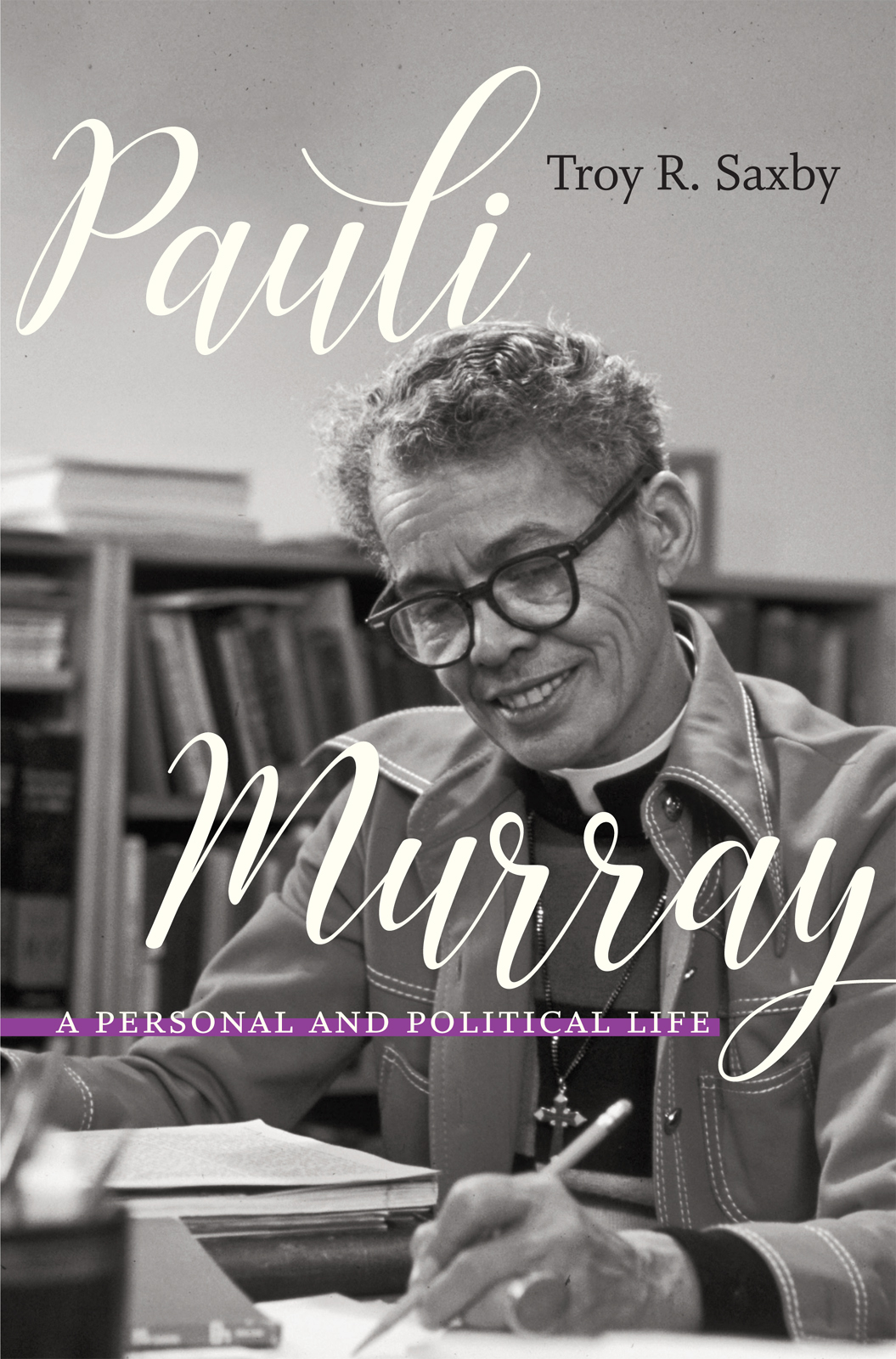
Pauli Murray

A PERSONAL AND POLITICAL LIFE

Troy R. Saxby
THE UNIVERSITY OF NORTH CAROLINA PRESS
CHAPEL HILL
2020 The University of North Carolina Press
All rights reserved
Designed by Kimberly Bryant
Set in Whitman and Challista Script by Tseng Information Systems, Inc.
Manufactured in the United States of America
The University of North Carolina Press has been a member of the Green Press Initiative since 2003.
Jacket photograph: Pauli Murray in 1977; courtesy of the Schlesinger Library, Radcliffe Institute, Harvard University.
Cataloging-in-Publication data for this title is available at the Library of Congress, https://lccn.loc.gov/2019049765.
ISBN 978-1-4696-5492-8 (cloth: alk. paper)
ISBN 978-1-4696-5493-5 (ebook)
for Luke & James
one
A Child of Destiny or a Nobody without Identity, 19101926
two
For All My Bravado, Deeply Engrained Notions of Respectability Filled Me with Distress, 19261940
three
An Unknown Negro Girl without Title or Prestige, 19401946
four
Such a State of Uncertainty, Caution, and Fear, 19461961
five
The Problems of Race Discrimination and Sex Discrimination Meet in Me, 19611973
six
I Am a Child of God, 19731985
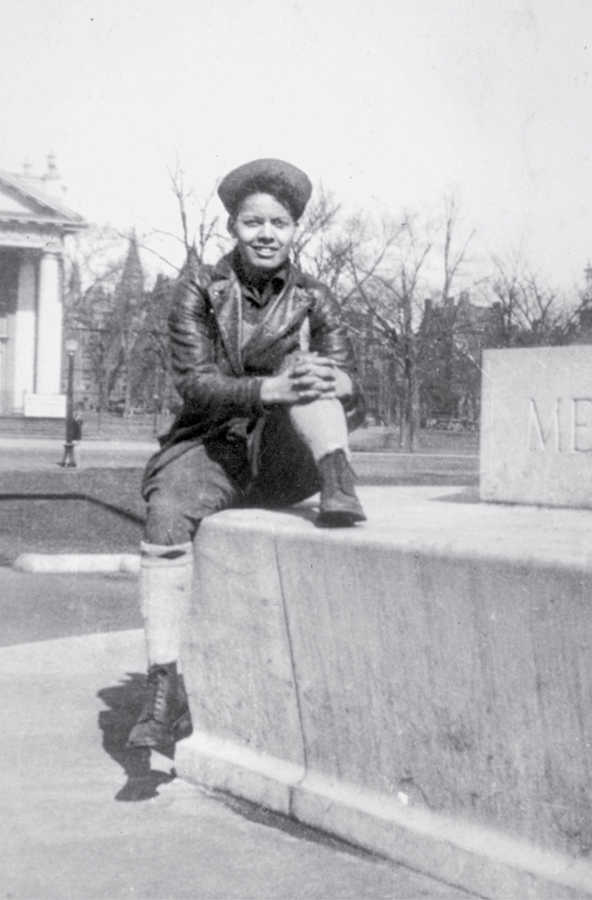
The train that services Croom in southern Maryland has only two carriages, the first for white passengers and the second for baggage and colored passengers. Pauli Murray, twelve years old and slightly built, sits alone in the second carriage. As the train rattles north along the single-track line toward Baltimore, there is little in the sceneryswamplands and undergrowth, mostlyand no company to distract her from thinking about the tragedy that has prompted this hastily arranged trip. The plan had been to spend an entire happy summer in Croom with her Aunt Sallies family, as she has done the past two years. Pauli loves the freedom and open spaces of Croom, the abundance of good food, playing with her two baby cousins, and taking country drives in her uncles Model T Ford, which can reach exhilarating speeds of over thirty miles an hour. But early in the summer a telegrams arrival brought this vacation to a sudden halt. As she sits in the second carriage, all she knows is the telegrams message: her father is dead, and she is expected at the funeral in Baltimore.
She journeys alone in part because she is now orphanedher mother died when Pauli was three, and her father was committed to a psychiatric facility shortly thereafter. Following her mothers death, Pauli went to live with maternal relatives in North Carolina and had almost no contact with the Murray family she now travels to be with. Because she knows only what the telegram announced, her fathers death does not yet seem real. Its difficult enough to picture him alive; she really only has two images to conjure. One is a revered impression she created from photographs and the reminiscences of her mothers sisters. In this vision he is a handsome, dapper young man: a sportsman, musician, poet, and well-respected school principal. The other impression, in stark contrast, she formed four years earlier when she visited him at Crownsville State Hospital for the Negro Insane. In this version, he is disheveled and neglected, dressed in patched, discolored overalls and cracked shoes. He looks much older than his forty-seven years: he shuffles; his eyes are dull, his face unshaven, his hair unkempt; and, worst of all, he fails to recognize her. Pauli doesnt know it yet, but soon after her train journey ends she will acquire a third, even more distressing image of her father.
Everything about arriving in Baltimore seems to possess an unsettling, bewildering quality. In rural Croom, the nearest neighbors house can barely be seen across a field, but here the city streets are paved, and on block after block sit endless rows of identical attached brick houses without porches or front yards. The house Pauli enters is distinguished only by a mourning wreath on the door. Inside, Aunt Rose and Uncle Bubbers home is larger and grander than she is used to; the three stories plus basement, indoor plumbing, and modern furnishings all impress her, as does the neat, fashionable attire of her Baltimore relations. By contrast, Pauli is a tomboy in secondhand clothes who speaks with a southern accent. She is also darker-skinned than many of her relatives; some of them can, and sometimes do, pass as white. Most bewildering of all, Paulis five siblings live in this house. She has only seen them once since their mother died and she alone left Baltimore. Her siblings have led very different lives since then, not least because in North Carolina Pauli learned all about her parents, whereas her siblings are forbidden from mentioning their mother and father. As mourners arrive at the house, Paulis alienation takes a disturbing turn. Aunt Rose keeps introducing all the children, Pauli included, as her own. Pauli learns still worse news: her father had been murdered at Crownsville, and the asylum will soon ship his body to this house.
Had Paulis adult relations known what to expect, Pauli later maintained, they would surely have requested that the casket be sealed. After looking at the remains, Aunt Rose places a handkerchief over her dead brothers face, and the coffin is placed in the parlor until the funeral can take place the following day. Mourners, almost all of them unknown to Pauli, gather in other rooms of the house. That night Pauli hears the grownups discussing a rumor that her father had argued with a white Crownsville hospital attendant, after which the attendant asserted, Ill get that nigger later. Several hours later the attendant cornered her father in a basement and beat him to death with a bat. The force of the blows fractured his skull from ear to ear. The Baltimore Afro-American front-page headline on the morning of the funeral screams, Killing Insane Principal, Most Brutal in States History.
In the hours between the coffins arrival and the funeral the following day, the urge to see her father proves overpowering. Over and over again, when nobody is watching, Pauli creeps into the parlor and up to the gray casket. She opens the lid and looks inside. She sees her fathers body dressed in a shabby, oversized suit and the handkerchief covering his face. She reaches a hand into the coffin and removes the handkerchief. She stares at the disfigurement: his face purplish with bruising, grotesquely swollen in places, mangled in others, and his head, roughly shaven, exposes a skull held loosely together with large, jagged stitching performed after a crude postmortem examination. Nothing about her father looks human except his hands. Over and over again, to convince herself its really him, she reaches into the coffin to touch and hold his hand. This is the only time Pauli remembers touching either of her parents.
TWELVE YEARS OLD AND ATTENDING her fathers funeral is not the way Pauli Murray is typically recalled and certainly not the reason I became interested in writing her biography. Murray has become increasingly well known in the last decade for innovating many famous nonviolent direct-action civil rights protests, helping found the National Organization for Women (NOW), having distinguished legal and scholarly careers, authoring several books, befriending influential figures such as Eleanor Roosevelt, and becoming the first Black woman Episcopal priest.
Font size:
Interval:
Bookmark:
Similar books «Pauli Murray: a personal and political life»
Look at similar books to Pauli Murray: a personal and political life. We have selected literature similar in name and meaning in the hope of providing readers with more options to find new, interesting, not yet read works.
Discussion, reviews of the book Pauli Murray: a personal and political life and just readers' own opinions. Leave your comments, write what you think about the work, its meaning or the main characters. Specify what exactly you liked and what you didn't like, and why you think so.




